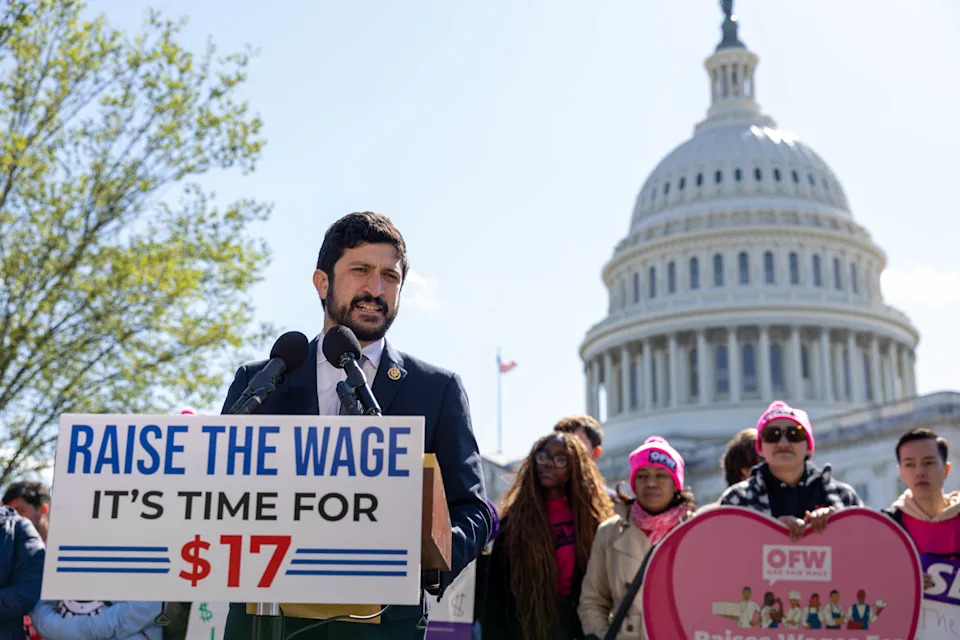
Millions of workers are getting a raise as new minimum wage laws kick in
Key Points
- Minimum Wage Increases: Over 880,000 workers in Alaska, Oregon, and Washington, D.C., saw their minimum wage rise starting July 1, with D.C.'s rate increasing from $17.50 to $17.95 per hour.**
- Broader Impact: A dozen cities and counties, including Chicago, Los Angeles, and San Francisco, also raised their minimum wages, affecting nearly 3 million workers directly and over 6.2 million indirectly through pay structure adjustments.**
- Demographic Reach: Nearly 60% of workers benefiting from these increases are women, and almost half work full-time, as reported by the Economic Policy Institute (EPI).**
- Inflation and Affordability: These wage hikes aim to help workers cope with inflation, which peaked at 9.1% in mid-2022, though experts like Yannet Lathrop emphasize the need for further federal action beyond the stagnant $7.25 hourly rate.**
- State and Sector Variations: Increases vary by location and sector, such as California’s healthcare workers earning up to $24 per hour, and tipped employees in some areas also seeing adjusted minimum wages.**
Summary
Starting July 1, minimum wage increases have boosted pay for over 880,000 workers in Alaska, Oregon, and Washington, D.C., with D.C.'s rate rising from $17.50 to $17.95 per hour. Additionally, cities like Chicago, Los Angeles, and San Francisco, among others, have implemented wage hikes, impacting nearly 3 million minimum wage earners and over 6.2 million others indirectly through pay structure changes. According to the Economic Policy Institute, nearly 60% of affected workers are women, and almost half are full-time employees. These raises are crucial for combating inflation, which hit a 40-year high of 9.1% in 2022 before dropping to 2.4%, yet experts argue more federal action is needed as the national minimum wage remains at $7.25, unchanged for over 15 years. Variations exist by state and sector, with California’s healthcare workers seeing rates up to $24 per hour, and tipped employees in some regions also benefiting. Overall, 88 jurisdictions across 23 states are set to raise wages by the end of 2025, addressing an ongoing affordability crisis as highlighted by Yannet Lathrop of the National Employment Law Project. Legislative efforts like the Raise the Wage Act aim to push the federal minimum to at least $17 per hour over five years, reflecting a broader push for economic relief.
yahoo
July 6, 2025
Stocks


